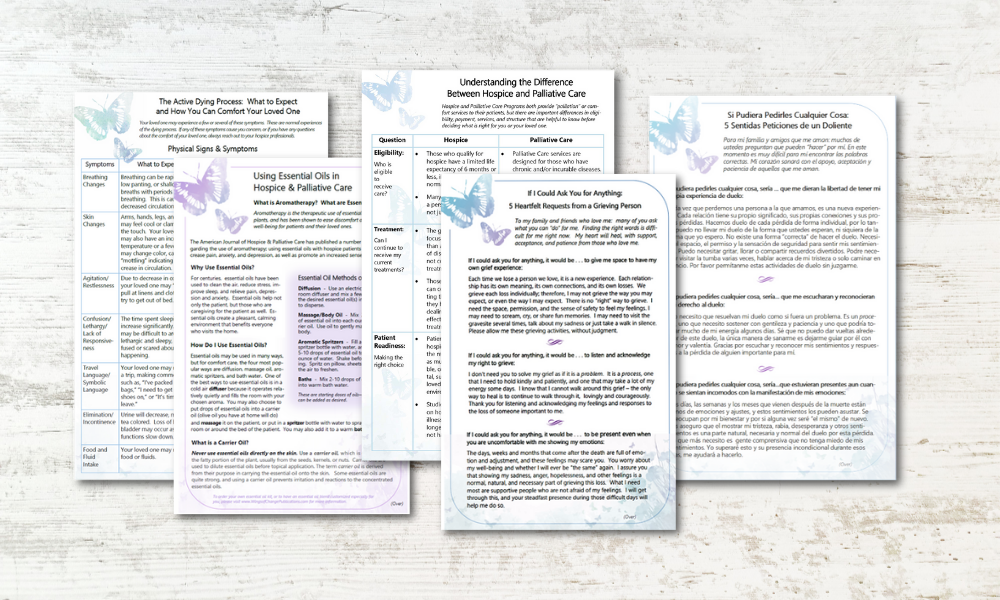It’s 10:40 pm, and after a long day of hospice nursing, problem-solving, and documentation, you are the on-call nurse for the evening.

It’s a scenario you know well: while this isn’t a patient on your caseload, you do your best to listen or read “report” and prepare yourself with the knowledge to assist this family as they struggle with their role as caregiver for their dying family member. The patient’s frazzled daughter opens the door, barely greeting you, and you walk into the house and feel the anxiety and tension as you watch the family members attempt to position the patient for comfort. The patient’s daughter hasn’t slept well in days, and the house is cluttered with medical supplies, laundry, dirty dishes with leftover frozen pizza crust, and children’s homework. The patient’s daughter is trying to care for her mother, help her children with their schoolwork, and manage her career via her smartphone, which never leaves her side. The caregiver waves her hand over the area and says, “welcome to my mess” with some apathy, but you can see the tears in her eyes. She describes herself as “fried,” and you can see the truths of her description.
The struggle for us as hospice professionals is to work within the context of the family dynamic. We are visitors in their home, and we are there to ease the physical, emotional, and spiritual pain of the unit of care – the patient, and the caregivers. Consider focusing on these action steps to ease anxiety and meet the needs of the patient and family in crisis times:
Start by Calming the Storm: Everyone, and I do mean everyone, can benefit by hearing that they are doing a good job, or doing the best they can. Take a moment to connect with the caregiver, make eye contact, and provide them with some verbal encouragement. Let them know you hear them, and that you understand the caregiver experience is difficult. A few moments of eye contact can create trust between you and the caregiver–don’t underestimate the value of this step.
Ask “what’s the most important issue that we address right now?” Your objective assessment skills may tell you to address one issue, but the worries of the caregiver may be an unseen, unknown issue that creates anxiety and causes discomfort, affects caregiving concentration and skills, and results in more on-call visit needs. It pays to ask the caregiver what concerns they have, and reassure them that no issue is too small. Education and information can ease anxiety, which results in calmer, more confident caregivers.
Ask the caregiver how they prefer to receive information. Apply your knowledge of adult learning – does the caregiver prefer to receive information visual, auditory, or kinesthetic learner? In other words, do they learn best by reading, hearing, or experiencing? Encourage the caregiver to take notes, draw pictures, and repeat procedures that have been taught to them.
Always leave written information for the patient and family to refer to in between visits. Revisit your patient education materials and make note of what to highlight with patients and families. Make sure that your education materials are easy for your patients and families to understand, and that the information left in the home reinforces what you have taught. Our easy-to-use caregiver education tools make your job easier, are found here. The feedback we receive from hospice professionals on our Pocket Guides has been outstanding. When you need to provide education, and family members are tired and overwhelmed, caregivers don’t have the time or concentration levels to read even a small booklet in its entirety. Pocket Guides are well-planned, organized tools that provide information to families in doses that they can digest. Discover these tools that can make their lives–and yours–so much easier in the 11th hour.

And one more thing–you aren’t told this nearly enough: thank you for the beautiful and compassionate work that you do. You make the difference in so many lives.